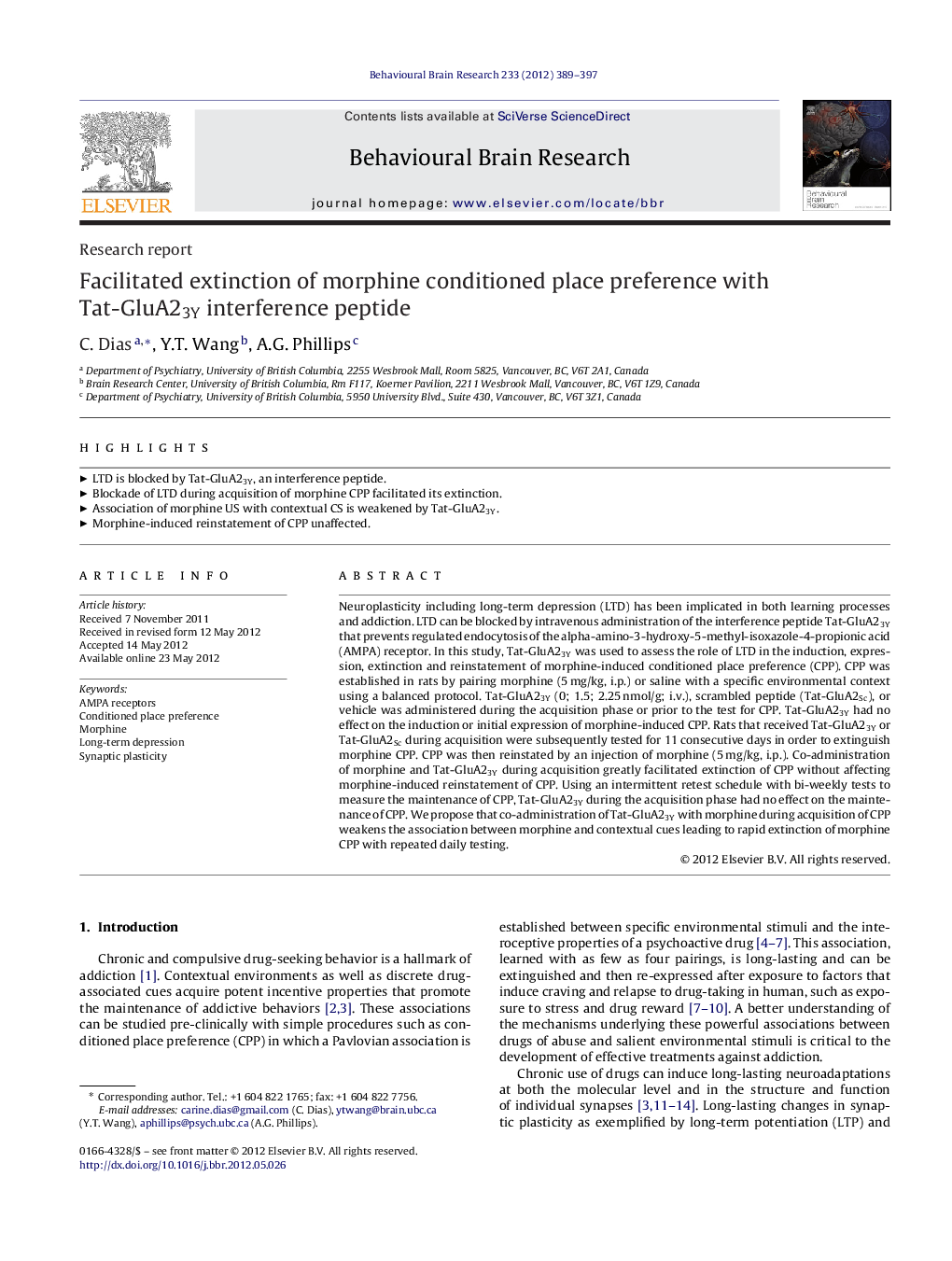| Article ID | Journal | Published Year | Pages | File Type |
|---|---|---|---|---|
| 4313146 | Behavioural Brain Research | 2012 | 9 Pages |
Neuroplasticity including long-term depression (LTD) has been implicated in both learning processes and addiction. LTD can be blocked by intravenous administration of the interference peptide Tat-GluA23Y that prevents regulated endocytosis of the alpha-amino-3-hydroxy-5-methyl-isoxazole-4-propionic acid (AMPA) receptor. In this study, Tat-GluA23Y was used to assess the role of LTD in the induction, expression, extinction and reinstatement of morphine-induced conditioned place preference (CPP). CPP was established in rats by pairing morphine (5 mg/kg, i.p.) or saline with a specific environmental context using a balanced protocol. Tat-GluA23Y (0; 1.5; 2.25 nmol/g; i.v.), scrambled peptide (Tat-GluA2Sc), or vehicle was administered during the acquisition phase or prior to the test for CPP. Tat-GluA23Y had no effect on the induction or initial expression of morphine-induced CPP. Rats that received Tat-GluA23Y or Tat-GluA2Sc during acquisition were subsequently tested for 11 consecutive days in order to extinguish morphine CPP. CPP was then reinstated by an injection of morphine (5 mg/kg, i.p.). Co-administration of morphine and Tat-GluA23Y during acquisition greatly facilitated extinction of CPP without affecting morphine-induced reinstatement of CPP. Using an intermittent retest schedule with bi-weekly tests to measure the maintenance of CPP, Tat-GluA23Y during the acquisition phase had no effect on the maintenance of CPP. We propose that co-administration of Tat-GluA23Y with morphine during acquisition of CPP weakens the association between morphine and contextual cues leading to rapid extinction of morphine CPP with repeated daily testing.
► LTD is blocked by Tat-GluA23Y, an interference peptide. ► Blockade of LTD during acquisition of morphine CPP facilitated its extinction. ► Association of morphine US with contextual CS is weakened by Tat-GluA23Y. ► Morphine-induced reinstatement of CPP unaffected.
